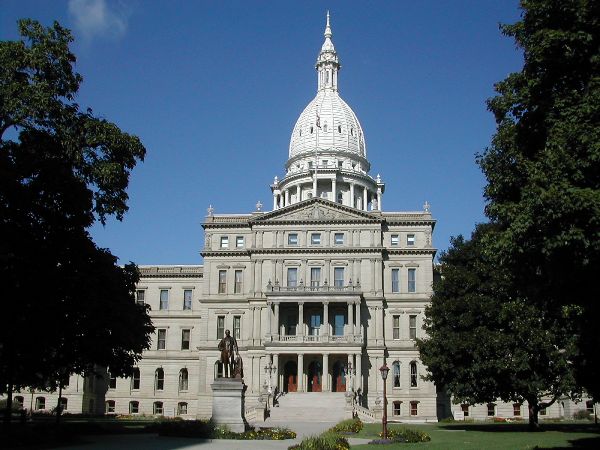Governor Snyder Signs Right-to-Work Legislation in Michigan

Governor Rick Snyder (R-Michigan) signed HB 4003 and SB 116 on Tuesday. Known as ‘Freedom/Right-to-Work’ legislation, the bills will severely reduce the effectiveness and membership of unions by no longer requiring union workers to pay dues as a condition of employment. The new laws also prohibit requiring union membership upon hiring.
Proponents of the bills, like Snyder, argue that it will improve economic conditions in Michigan:
"Workers deserve the right to decide for themselves whether union membership benefits them. We also must make Michigan more inviting to job providers so our families can enjoy more and better jobs."
Snyder had indicated earlier this year that he would steer clear of any such legislation, calling it ‘divisive’ and remarked that it was ‘not on the agenda.’
Sponsored by Paul Opsommer (R-District 39) in Michigan’s House and Arlan Meekhof (R-District 30) in the Senate, the bills were passed and signed without moving through the traditional legislative avenues of public discussion or committee hearings. Union supporters have expressed outrage over what they perceive to be a double cross.
The SEIU released a statement from Reverend Charles Williams III of National Action Network’s Michigan Chapter:
“It's heartbreaking that Rick Snyder has chosen to tear Michigan apart and betray the American Dream rather than working with us to create good jobs and secure a brighter future for our state. We urge Governor Snyder to cut the puppet strings of Dick Devos and the Koch brothers and end his attacks on Michigan's working middle class"
House Democrats have derided the move by Republicans. None voted for the bill and many have expressed disdain for the legislative strong-arming. Michigan's Democratic Party Chair, Mark Brewer stated, "If Governor Snyder thinks that Michigan citizens will go home and forget about what happened in Lansing today, he is sorely mistaken.”
Salon reported ties between the bills and model legislation from the American Legislative Exchange Council (ALEC), often criticized as a haven for corporate influence in politics. Since the signing, thousands of Michiganders marched on the capitol in Lansing to voice their disapproval of right-to-work legislation.
However, it is unlikely these laws will be overturned any time soon. Included within the bills are $1 million in appropriations for implementation, and spending bills cannot be subject to public referendum in Michigan.
Many protesters dawned tape over their mouths with ‘$1,500 less’ written across it. The message refers to the average difference in income between states operating under ‘right-to-work’ laws and those that aren’t. Though a recall is possible, Michigan Democrats are more likely to pursue an aggressive campaign to relinquish Republican control of the Governorship and the state legislature in 2014.




